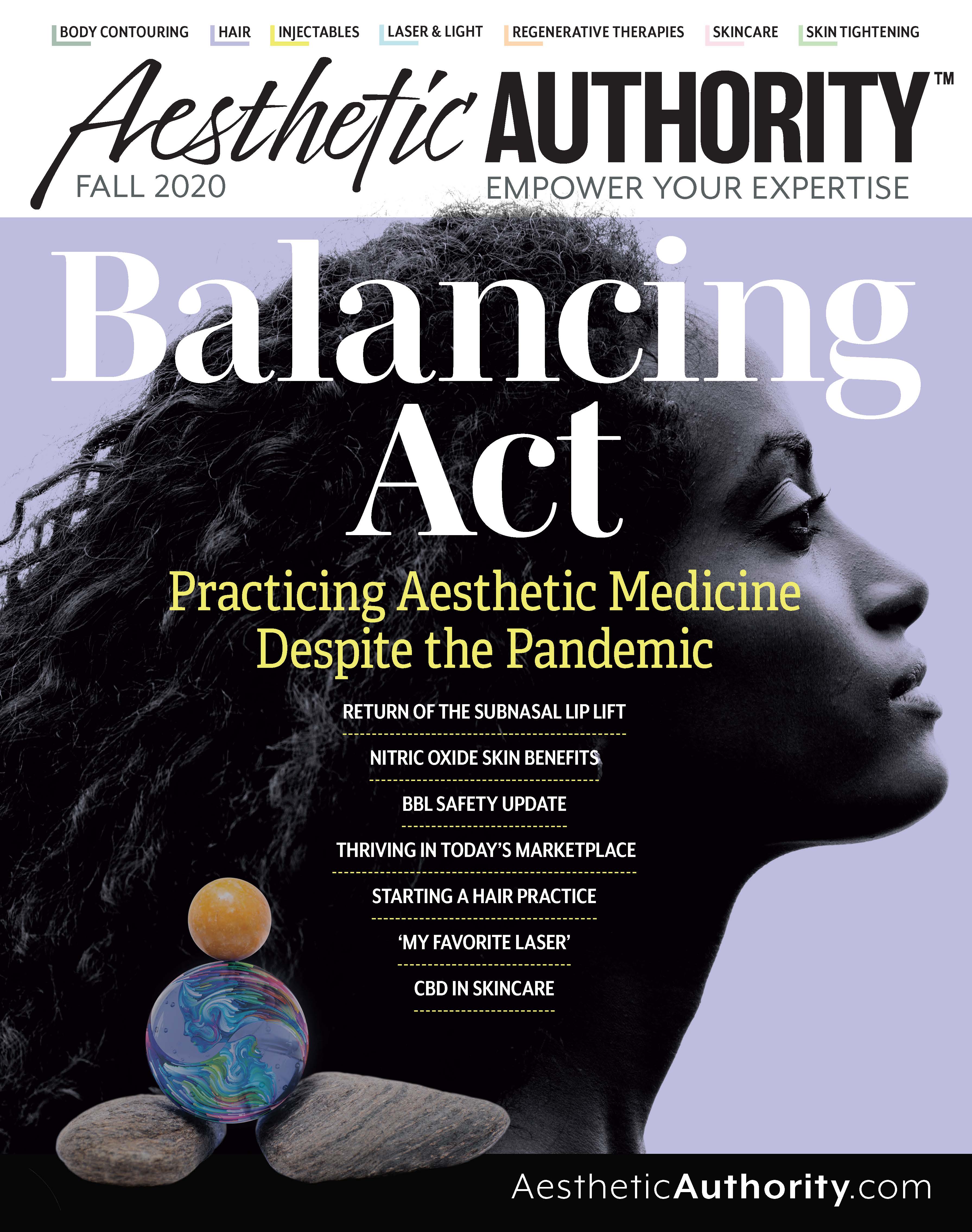- Case-Based Roundtable
- General Dermatology
- Eczema
- Chronic Hand Eczema
- Alopecia
- Aesthetics
- Vitiligo
- COVID-19
- Actinic Keratosis
- Precision Medicine and Biologics
- Rare Disease
- Wound Care
- Rosacea
- Psoriasis
- Psoriatic Arthritis
- Atopic Dermatitis
- Melasma
- NP and PA
- Skin Cancer
- Hidradenitis Suppurativa
- Drug Watch
- Pigmentary Disorders
- Acne
- Pediatric Dermatology
- Practice Management
- Prurigo Nodularis
- Buy-and-Bill
Publication
Article
Aesthetic Authority
Treating Maskne Inside and Out
Author(s):
Acne mechanica from mask wearing, or maskne, may warrant combination treatment with supplements, lasers, and topicals.
As society continues to wear masks in public to slow the spread of coronavirus, facial irritation has become a rising issue.
Acne mechanica related to mask wearing, or maskne, isn’t just a result of the skin irritation caused by mask friction to the face, it’s also related to internal physiology, according to Suneel Chilukuri, MD, board certified dermatologist, Refresh Dermatology, Houston, Tex.
“[Maskne] is based on the moisture that's getting caught underneath that mask,” says Dr. Chilukuri. “The breath gets stuck there, then it leads to a breakdown of your skin. When you have a breakdown of skin, you have greater transepidermal water loss because the skin is not perfectly protected there. What ends up happening is you have more evaporation and your body senses that it's feeling dry so it's increasing the production of sebum and ceramides trying to make the skin restore itself.”
The second cause of maskne, he says, is stress associated with the pandemic and future unknowns.
“Cortisol levels are at an all-time high,” he says. “It increases the conversion of your testosterone to dihydrotestosterone or DHT. DHT, in effect, activates the sebaceous glands to produce more oil. I think it's this cycle of skin breakdown, plus increased sebum production, that's causing more of the acne or rosacea flares and rosacea overlap.”
A research letter published by the Journal of the American Academy of Dermatology reports that healthcare personnel and other essential workers are most at risk for mask irritation because masks are more tightly fitted and worn for longer periods of time.1
According to the letter, at least 83% of healthcare workers in Hubei, China, suffered skin problems to the face because of their masks. Doctors also anecdotally report an increase of acne breakouts in people outside of the medical field.1






